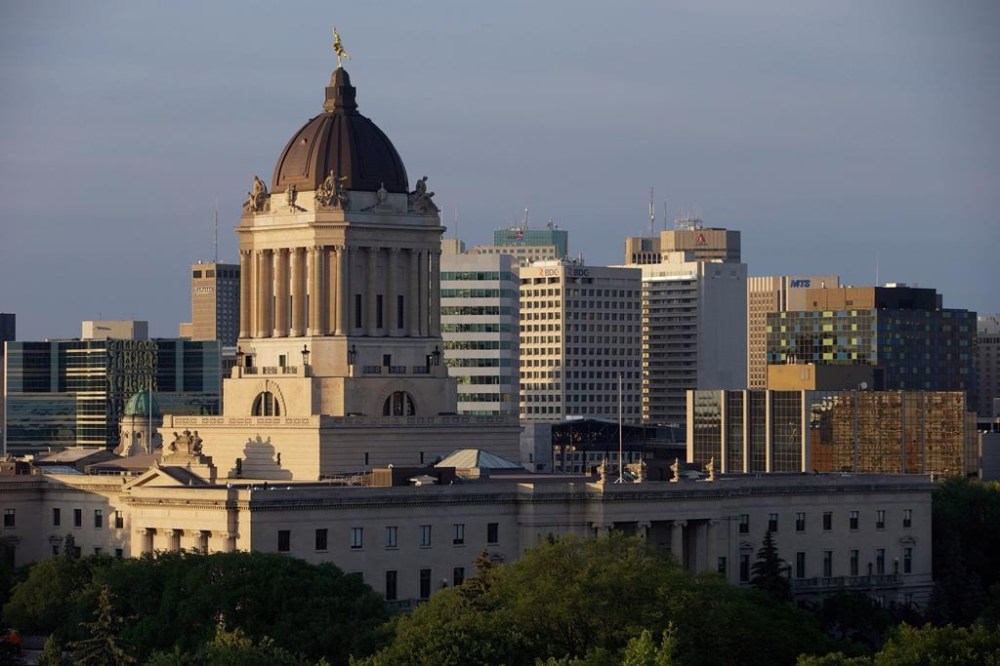Staffer severance payments reach $1.7M after Manitoba government changes hands
Advertisement
Read this article for free:
or
Already have an account? Log in here »
To continue reading, please subscribe:
Monthly Digital Subscription
$0 for the first 4 weeks*
- Enjoy unlimited reading on winnipegfreepress.com
- Read the E-Edition, our digital replica newspaper
- Access News Break, our award-winning app
- Play interactive puzzles
*No charge for 4 weeks then price increases to the regular rate of $19.95 plus GST every four weeks. Offer available to new and qualified returning subscribers only. Cancel any time.
Monthly Digital Subscription
$4.99/week*
- Enjoy unlimited reading on winnipegfreepress.com
- Read the E-Edition, our digital replica newspaper
- Access News Break, our award-winning app
- Play interactive puzzles
*Billed as $19.95 plus GST every four weeks. Cancel any time.
To continue reading, please subscribe:
Add Free Press access to your Brandon Sun subscription for only an additional
$1 for the first 4 weeks*
*Your next subscription payment will increase by $1.00 and you will be charged $16.99 plus GST for four weeks. After four weeks, your payment will increase to $23.99 plus GST every four weeks.
Read unlimited articles for free today:
or
Already have an account? Log in here »
Hey there, time traveller!
This article was published 20/02/2024 (682 days ago), so information in it may no longer be current.
WINNIPEG – Severance payments to political staff following last year’s Manitoba election have reached about $1.7 million, government figures show — and that does not include an undisclosed payout to the former chief executive officer of Manitoba Hydro.
Large-scale staff turnover is a regular occurrence after elections lead to a government changing hands. The Manitoba election on Oct. 3, which saw the NDP end seven years of Progressive Conservative rule, was no exception.
Unlike civil servants, political staff — ministerial chiefs of staff, policy advisers, cabinet press secretaries and more — are expected to be politically aligned with the party in power. Their employment comes and goes with changes in government.

“Political jobs are a form of ‘vulnerable employment’ because there is a wholesale exodus of individuals serving the premier, cabinet and individual ministers when governments change,” said Paul Thomas, professor emeritus of political studies at the University of Manitoba.
“Usually there is a formula used to calculate the severance payout for individual staffers based on the level of their former job, their previous salary and years of service.”
A government web page that discloses payments for such employees lists dozens of staff that received severance payments in the weeks following the October election.
Many received less than $10,000. A few received more than $50,000. One of the largest payments — $146,000 — went to a longtime Progressive Conservative who worked for caucus before the Tory election win in 2016 and rose to become chief of staff.
Some payments were given in two instalments — November of last year and January of this year. Employees had the option of spreading out the payments over two years for tax purposes.
So far, the government and Manitoba Hydro have not revealed the severance payment given to former CEO Jay Grewal, who was let go by the Crown corporation’s board earlier this month.
Her total compensation in 2022 was $515,000, Manitoba Hydro’s annual report from that year shows.
Given that, her severance could be substantial, Thomas said.
“The standard used to be 18 months of a continuing salary to allow the dismissed leader to land another job. Given her talent and experience, Grewal will have no difficulty finding a senior position,” Thomas said.
Future annual reports are expected to show her total compensation for this year — a global figure that would include severance pay, a partial year’s salary and possibly other items.
Grewal, whose previous experience includes time as chief financial officer at BC Hydro, was appointed head of Manitoba Hydro in 2019. After the NDP won the election, the government replaced the Crown corporation’s board. The board dismissed Grewal on Feb. 13.
A rift between Grewal and the NDP government became apparent last month, after Grewal told a business audience that Manitoba Hydro could need new energy sources as early as 2029.
She repeated earlier plans by the corporation to purchase wind power from private-sector partners. The minister responsible for Manitoba Hydro, Adrien Sala, said future hydro projects must be publicly owned.
Sala said Grewal’s dismissal was a board decision, and board chair Ben Graham said the board’s assessment of senior leadership at the corporation had started months earlier.
Grewal did not respond to an interview request on her departure.
This report by The Canadian Press was first published Feb. 20, 2023.



